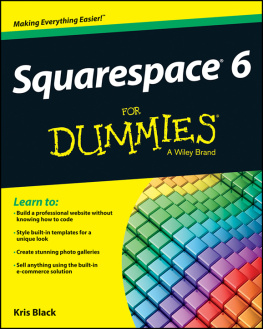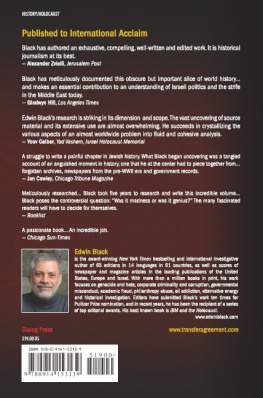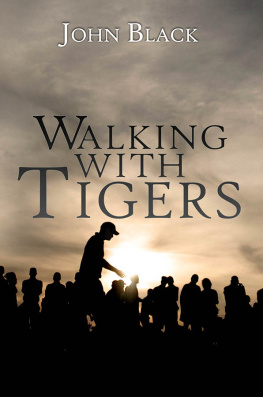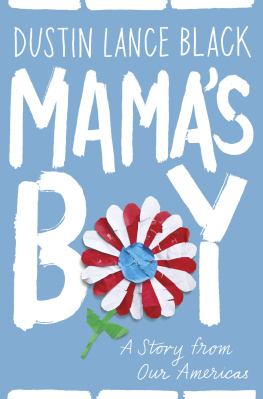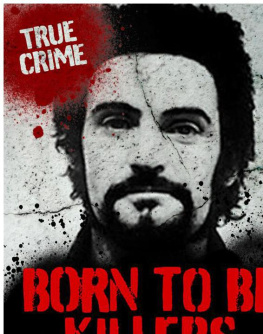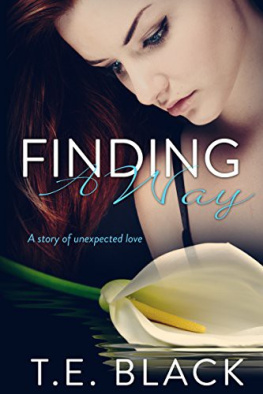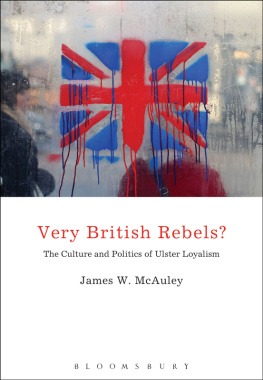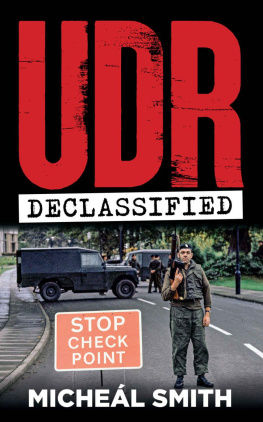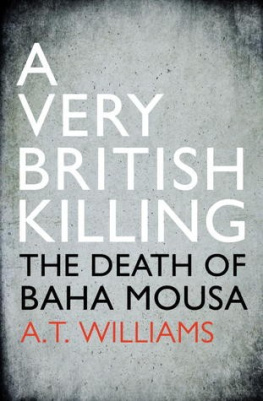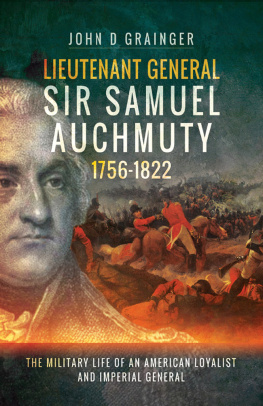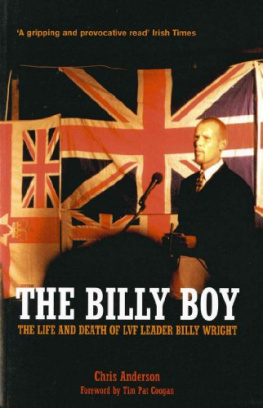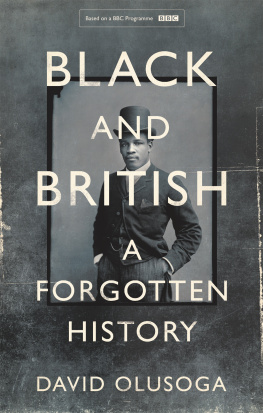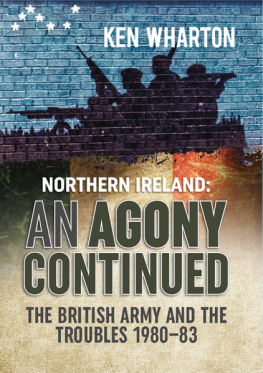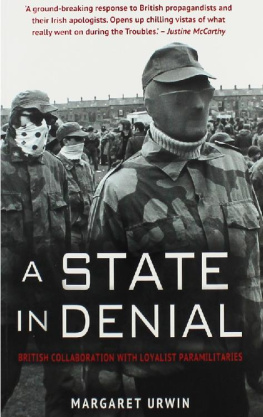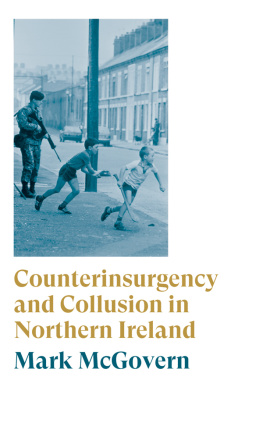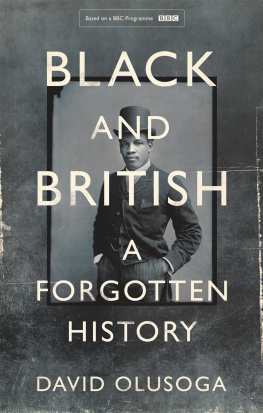
John Black
Published 2008 by Frontline Noir Publishing,
an imprint of Books Noir, Scotland
Reprinted 2009, 2011
Copyright John Black, 2013
The right of John Black to be identified as the author of this work has been asserted by him in accordance with the Copyright, Designs and Patents Act, 1988.
ISBN: 978 1 904684 91 6
Contents
John Black has written a very important book. Killing for Britain is another significant chapter in the as yet unfinished
history of Northern Irelands Dirty War. Slowly, ever so slowly, the carefully constructed British cover up designed to conceal the actions and activities of the intelligence agencies is unravelling. Bit by bit the defensive wall is crumbling as more and more people gain the courage to speak out and reveal what really happened here in this small but troubled province. What was once a trickle of information has now become a steady stream! John Blacks book will add to that flow.
There are those within the British Establishment who, come hell and high water, will never admit to what went on within the murky and extremely dangerous world of counter-terrorist operations. But, they would do well to remember the old adage - the truth has a habit of seeping out when least expected.
There are also those within the unionist community who, to the day they die, will dismiss as nonsense the very idea of state sanctioned murder. The suggestion that the state to which they espoused loyalty all their lives would ever operate in such a devious and ruthless fashion is abhorrent to them. The very idea members of their own community were recruited, trained and used as tools of the state to carry out acts of murder simply beggars belief. But, its time they wake up and faced reality it did happen. Killing for Britain is yet further proof if indeed more were needed of what happened out the outset of more than 30 years of violence in Northern Ireland. The state was complicit in murder.
Loyalists and their paramilitary organisations were fertile recruiting areas for RUC Special Branch and Military Intelligence in the early years of the Troubles. At that time Northern Ireland was in turmoil. Civil War appeared inevitable. The IRA were killing soldiers and members of the RUC on a regularly basis. Republican bombs were ripping the commercial heart out of major towns across the province. Nothing it appeared - could be done to halt the campaign of carnage and destruction. The loyalist/unionist community was devoid of the proper leadership it so desperately needed at that time. Defence of family, friends and home became a priority. Revenge also became a major issue in the mind-set of many within the loyalist community. It was a time to stand up and be counted and many young protestant joined the ranks of the UVF or UDA simply because they thought it was the right thing to do at the time. However, the loyalist paramilitaries lacked the required training, equipment and intelligence to enable them to take the war to the IRA. Enter The Military Reaction Force (MRF) a specialist unit within the British Armys military intelligence network. Based at Palace barracks, Holywood the MRF came into being in mid-1971. As well as carrying out undercover operations in the early 1970s MRF soldiers also recruited members of loyalist and republican paramilitary organisations.
Killing for Britain is one mans personal account of what it was like to work for the MRF. John Blacks book is an in-depth, chilling insight into what really happened in those early days more than thirty years ago. It literally lifts the lid on a previously hidden and suppressed chapter of Northern Irelands bloody history. One of the most important features of Blacks book is his exposition of the manner in which MRF securocrats callously decided who should live and who should die. As in later years London dictated operation policy to further its own political ends. A strategy so successful that it persisted for over 3 decades before eventually culminated in the signing of the Belfast Agreement in April 1998.
The MRFs objective was basic by arming and training loyalist death squads to kill Catholics they hoped to pressurise the Provisional IRA into abandoning their military campaign. History has already delivered its verdict on that particular ill-conceived concept!
I shall not in this forward, try to summarise the absorbing and shocking episodes which form Killing for Britain . These are both complex and disturbing and my attempt to summarise them by compression would simply distort and spoil the book for the reader. I should, however, ask the reader to consider one particular theme which runs through the book complicity. Respectable Ireland North and South businessmen, clerics, professional classes and politicians have throughout the history of the Troubles condemned the numerous atrocities carried out by loyalist and republican paramilitaries. Yet all parties, in one way or another, have helped prolong the very existence of these same organisations. The distinctly shabby role played by some senior British politicians who either condoned or turned a blind eye to breaches of law and order by the security forces in the early years of the Troubles must also be condemned.
Writing about Northern Irelands Dirty War also comes with price, as those of us who have already done so can testify. You need courage and support to take on the British Establishment which has its own predictable way of dealing with allegations and claims of state sponsored killing. It simply closes ranks, rides the storm, assesses the situation and fights a defensive rearguard action down the line. If a defensive wall is breached, another stands immediately behind it ready to stall those who dare to attack the system. It is a process that has proven to be effective in the past. Because of that success it is a system that will be used again when the need arises. I have absolutely no doubt that same rear-guard defensive action will be applied in respect of the allegations contained in Killing for Britain .
John Blacks account of what really happened over 30 years ago is a disturbing and startling account of the actions of the Military Reaction Force. I trust the majority of those who take the time to read Killing for Britain will agree the truth about Northern Irelands Dirty War must be exposed. We are moving forward but the bloody history of the Troubles must be confronted and laid to rest otherwise it will simply return and haunt future generations in the years to come.
Chris Anderson, (author of The Billy Boy ) October 2008
I want to put on record my debt of gratitude to the various writers whose works I have referred to for background material and sundry facts. Notable among these are: Those are Real Bullets, Arent They? by Peter Pringle and Philip Jacobson; The Dirty War and The Shankill Butchers by Martin Dillon; Faith and Duty by Nicky Curtis; Lost Lives by David McKittrick, Seamus Kelters, Brian Feeney and Chris Thornton; and the Conflict Archive on the Internet project website, http://cain.ulst.ac.uk, created by Martin Melaugh. I have written this book to demonstrate how facts can be looked at in different ways. If nothing else I hope this exercise in non-fiction may alert a few more readers to the betrayal of trust committed during the Long War by Governments, politicians, religious leaders and many others, both here and in America. I must also humbly thank a wonderful person and truly remarkable friend, Cecilie, without whom this work would never have reached the publisher in the first place. She was always there when I needed support in completing the script, when I was ready to pack in the whole project and dump it in the bin. Her contribution to correcting the grammatical mistakes and rewriting parts of the manuscript was invaluable. She took a rough piece of granite and gave me back a polished version. I must mention the help received from Bob Smith, my publisher, who advised and helped throughout the process. And a big thanks to Martin Ingram for pointing me in the right direction in the first place.
Next page

